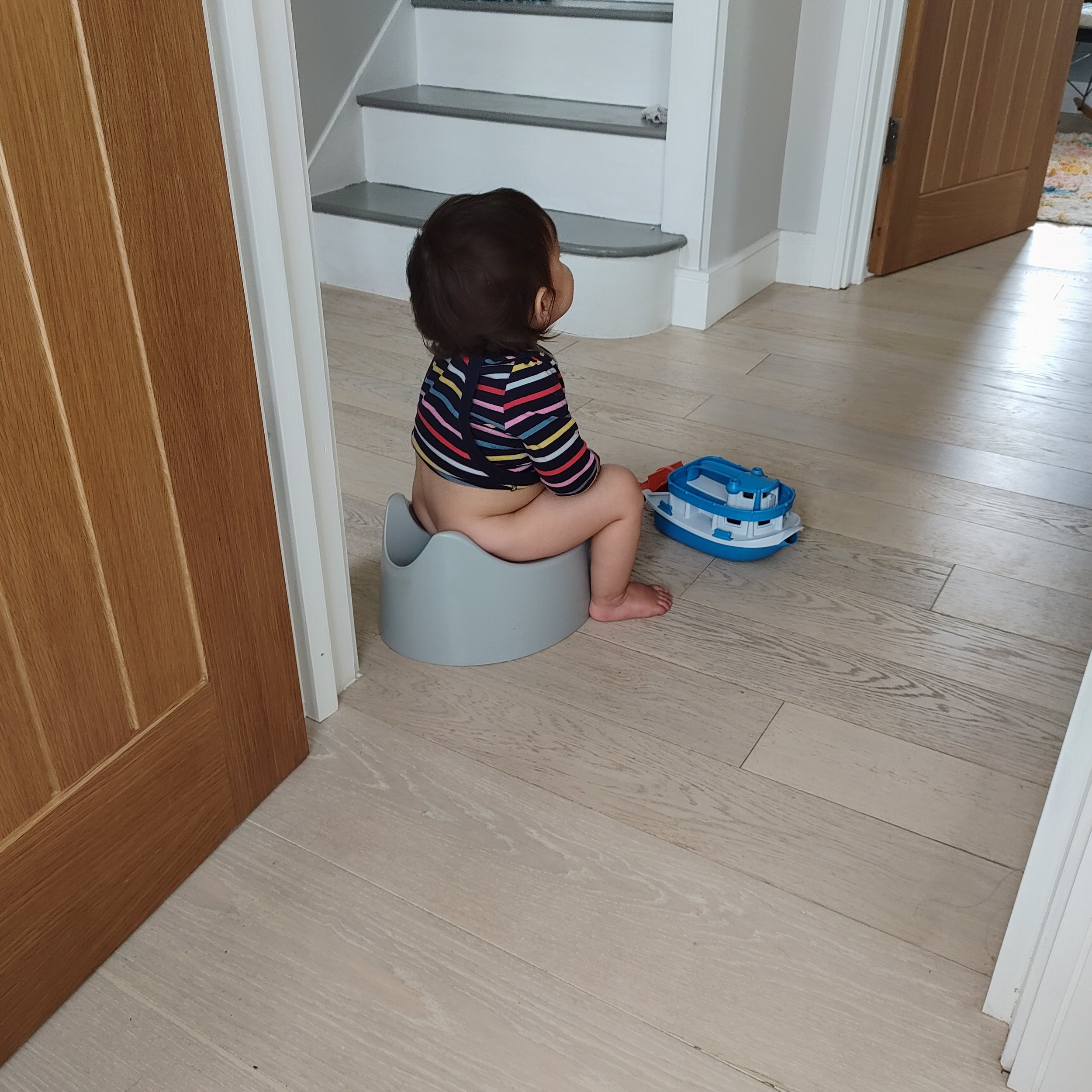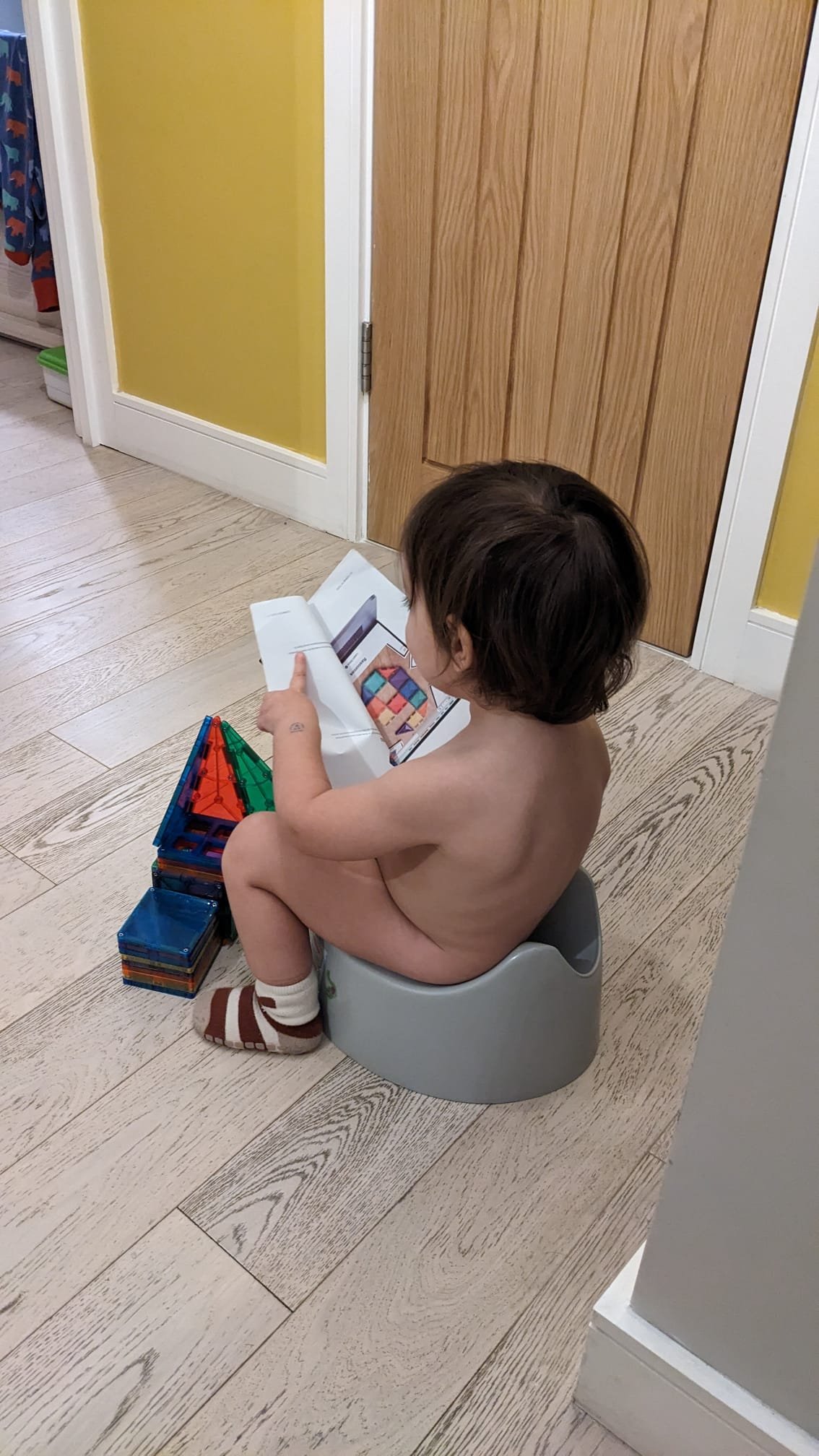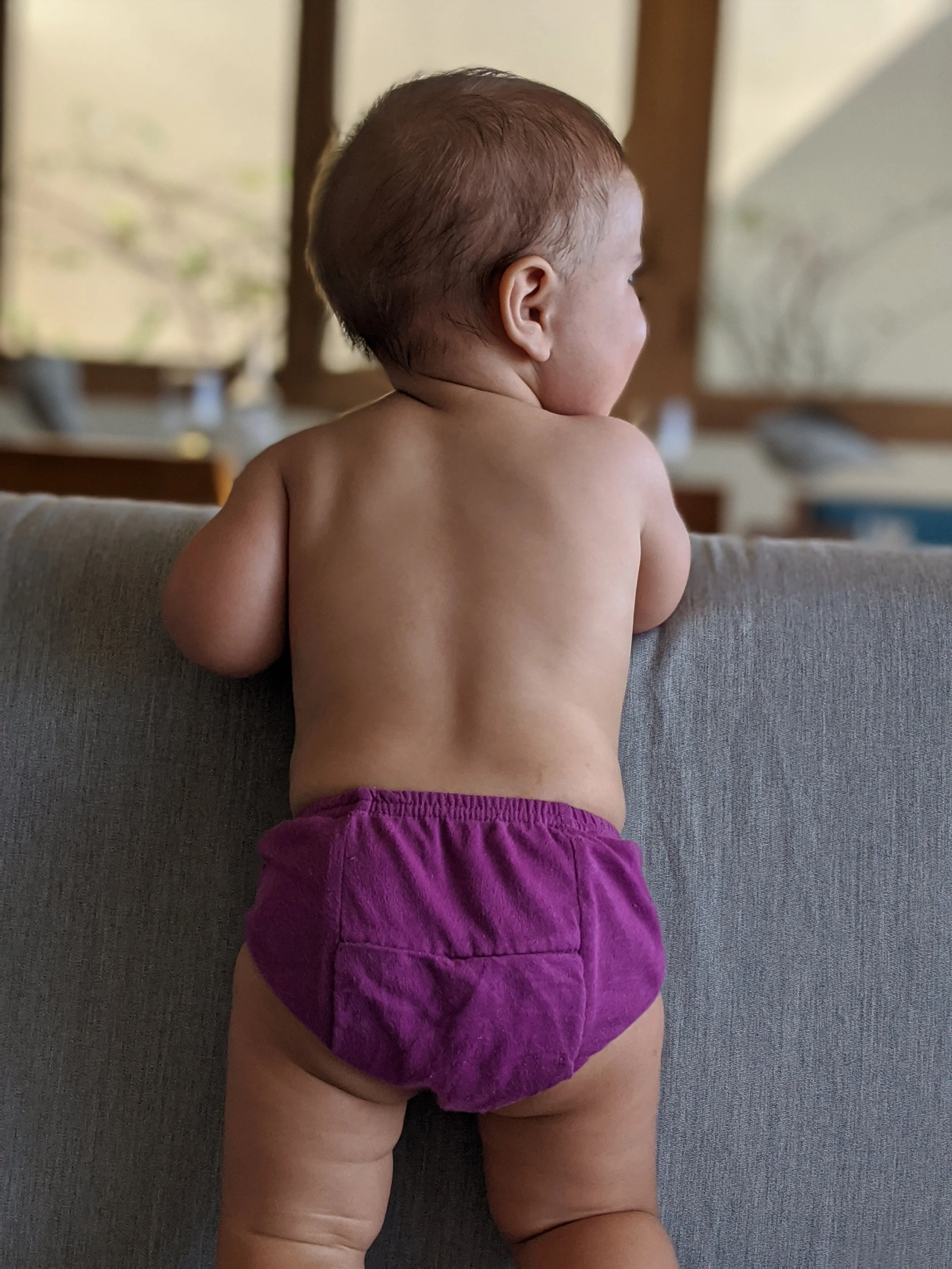
ELIMINATION COMMUNICATION
A Holistic & intuitive Approach to pottying your babY
WHAT IS elimination communication?
Elimination Communication (or EC as it’s commonly known) offers a unique perspective on nappy (diaper) use for babies. It involves tuning into our baby’s cues and natural timing to anticipate when they need to use the toilet. Despite common misconceptions, babies often eliminate at predictable times and they show physical signals when they need to go. Learning to recognise and respond to your baby’s natural timings and cues allows us to offer the potty instead of seeing the nappy as a wearable toilet. Through this approach, we can recognise patterns, such as weeing soon after waking up and establish a rhythm with our babies.
Although it may seem unconventional, EC is not a new practice. Many cultures worldwide still use methods similar to EC due to limited access to nappies or cultural preference not to use them.
In the UK and the US, EC was common just a couple of generations ago, but the introduction of disposable diapers in 1955 led to a change in attitudes and baby-caring routines which led to the decline in EC knowledge and practice in most Western countries.
EC is NOT early potty training.
While most EC'd babies transition out of diapers sooner than average, the focus is on communication rather than achieving early toilet independence.
this course is for you if:
You are curious about EC but unsure where to start.
You are expecting a baby or you have a baby under 14 months old.
You’re interested in an ancestral and intuitive approach to parenting.
You would like to understand and respond to your baby's cues with compassion.
You’re seeking practical strategies to incorporate EC into your daily routine.
You believe in nurturing your child's natural awareness and bodily autonomy.
You are familiar with Aware Parenting and would like to incorporate EC in a way that aligns with it.
what is included in this course?
There are a total of 17 short videos to watch in your own time, including a section of Frequently Asked Questions.
Videos are 2 - 10 minutes long, so the course is around 2 hours in total.
You get lifetime access and can come back to it whenever you need.
There is also a 10-page handbook with a breakdown of the method and some extra tips.
The class is suitable for parents-to-be, parents or caregivers of babies under 14 months, as well as nursery workers or anyone working with babies under 12 months.
The course content includes
Introduction:
A brief history of EC, EC in a nutshell
The method:
How to start with EC, how to know when they need to go, how to hold and offer the potty
Extras:
Benefits of EC, supplies, books, wrapping up
FAQs:
How long to hold baby for, EC and Aware Parenting, Out and about and more questions.
why consider ec?
Babies are born with an awareness of their bodily needs, including the need to eliminate wee and poo. Full-time diaper use can diminish this awareness, but practising EC helps babies retain it, making the transition to independent toileting easier and smoother.
By learning to read their cues around elimination, parents gain insight into their baby's discomfort signals and can respond more effectively.
If you are also following Aware Parenting, we can observe the effects of accumulated unexpressed emotions, stress or trauma in our babies’ digestion.
Try to enjoy it as a way to further bond with your infant. Don’t make it about you versus them. Don’t do it for the environment. Don’t do it to save money. Don’t do it to keep up with your peers or because someone told you to. Don’t do it for health reasons. Those are all good reasons, but you should focus on having quality time with your infant. If EC does not allow for that, if it adds more stress, or if it just doesn’t work for your family, then you shouldn’t do it. That being said, [if you’re interested] I think you should try it and give it an honest attempt. You might be surprised.
- Dr. Jeffrey Bender
If you choose to embrace EC, approach it with a sense of enjoyment—it may not work every time, but there's no harm in trying!
course & support options
-
EC course
2.5 hours of content to watch in your own time
10 page handbook to download
One-off investment = less than 2 bags of nappies -
Two instalments
2.5 hours of content
10 page handbook to download
Pay in 2 instalments
-
course + consultation
EC course - 2.5 hours of content and 10 page handbook
PLUS
60-min troubleshooting consultation
do I need to stop using nappies?
As the name implies, EC revolves around communication and responsiveness. It doesn't require completely forgoing nappies or spending entire days fixated on catching every wee or fretting over misses. Instead, it's about meeting everyone's needs in a way that works for your unique family dynamic.
I've had the privilege of supporting diverse parents on their EC journeys. Some opted for a diaper-free approach, while others utilised disposables but remained attuned to their baby's cues, even incorporating sign language to maintain awareness of elimination without necessarily using the potty. There's no one-size-fits-all method for practising EC—it's as varied as the families who embrace it and this course is made with this in mind.
The most daunting aspect of EC is often taking the first step. If you're curious, I encourage you to sign up to this course so you feel more confident in taking off that first nappy.
FAQs
-
You can start anytime. Yes, really - you can start from birth or up to around 14 months.
If your child is 14 months or older and they are walking, you may want to consider the Potty Mastery course instead. There is a section for transitioning to the toilet gradually for babies under 18 months. -
Usually, it is easier to start EC before 12 months. However, if your baby is 12-14 months or up to 16 months but not yet walking, you can still begin EC and consider transitioning to full-time toilet use in the following months.
-
Absolutely! EC can be practised in any climate. You can adjust clothing layers or use indoor potties to make it comfortable for both you and your baby.
-
Yes, you can! EC can be done entirely indoors. You can set up a designated potty area or use portable potties for convenience.
-
While EC requires dedication and patience, many parents find it rewarding and enjoyable. It's a unique opportunity to deepen your bond with your baby and support their natural development. Plus, once you establish a routine, it becomes second nature.
The most daunting aspect of EC is often taking the first step. If you're curious, I encourage you to sign up to this course so you feel more confident in taking off that first nappy. -
As the name implies, EC revolves around communication and responsiveness. It doesn't require completely forgoing nappies or spending entire days fixated on catching every wee or fretting over misses. Instead, it's about meeting everyone's needs in a way that works for your unique family dynamic.
I've had the privilege of supporting diverse parents on their EC journeys. Some opted for a nappy-free approach, while others used disposables but remained attuned to their baby's cues, even incorporating sign language to maintain awareness of elimination without necessarily using the potty. There's no one-size-fits-all method for practising EC—it's as varied as the families who embrace it and this course is made with this in mind.


